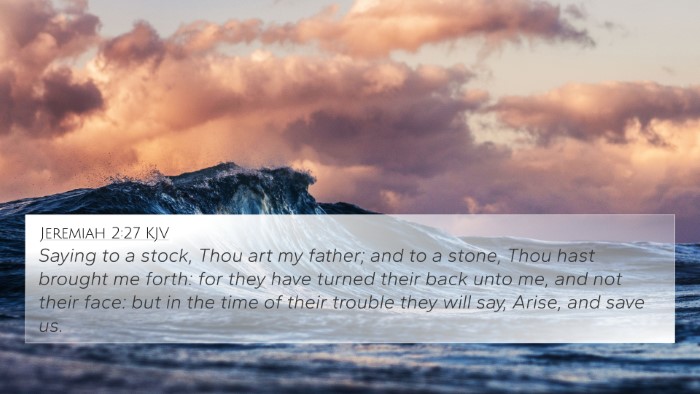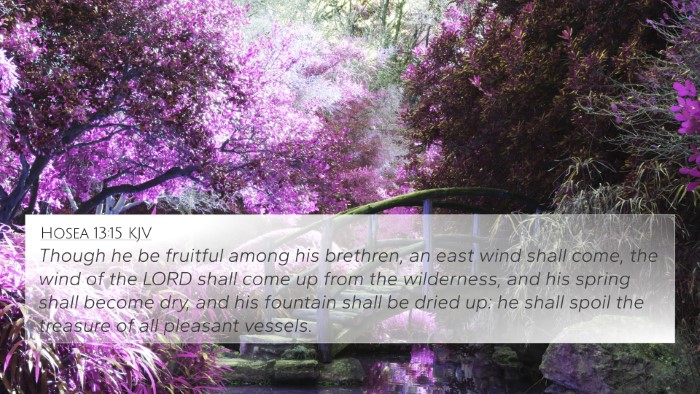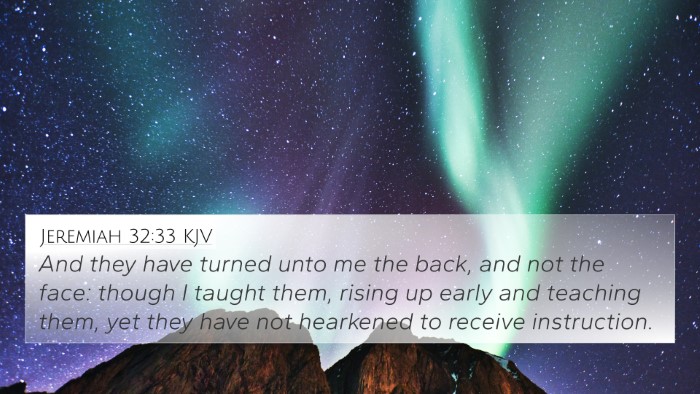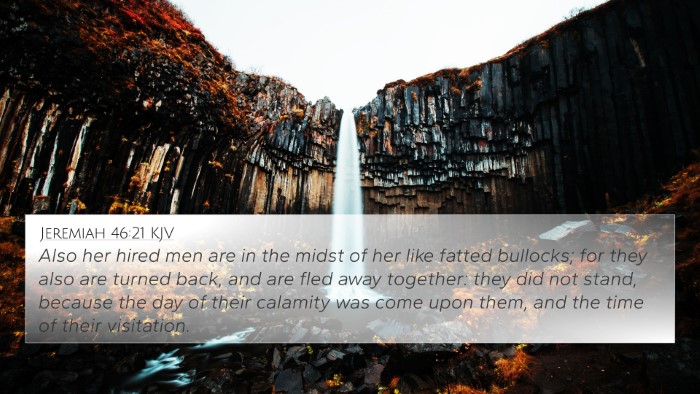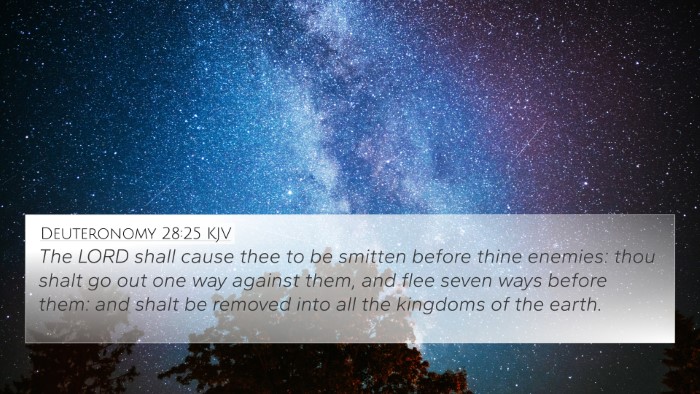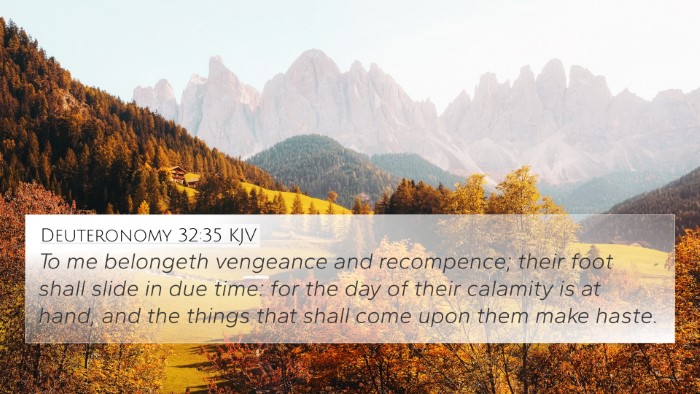Understanding Jeremiah 18:17
Jeremiah 18:17 says, "I will scatter them as with an east wind before the enemy; I will show them the back and not the face in the day of their calamity." This verse reflects God's impending judgment and the consequences of disobedience. Below, we explore the meanings drawn from various public domain commentaries.
Summary of Key Insights
- Divine Judgment: The east wind is often viewed as a symbol of destruction and judgment in biblical literature. God's intention to scatter His people signifies a severe consequence of turning away from Him.
- Symbolism of Face and Back: The imagery of showing the back rather than the face indicates God's withdrawal of favor and protection. It signifies judgment where God does not show mercy but only allows calamity.
- Historical Context: Jeremiah's message arises in a tumultuous time when the Israelites faced threats from foreign nations. It serves as a warning against persistent sin and idolatry.
- Call to Repentance: The verse resonates with God's desire for repentance. Despite His judgment, there is an underlying message inviting the people to turn back to Him.
- Prophetic Implications: As a prophet, Jeremiah's words highlight the serious consequences of national disobedience and the grievous nature of sin against God.
- The East Wind: This metaphor is explored in other scriptures, emphasizing its destructive nature. It represents swift and inevitable judgment unfolding over Israel.
- Reflection of God’s Nature: The duality of God's character is evident—He is simultaneously a loving guide and a righteous judge, ensuring justice is served.
Bible Verse Cross-References
This verse is interconnected with numerous other scriptures that explore themes of judgment, repentance, and the nature of God's relationship with His people. Notable cross-references include:
- Isaiah 27:8: Discusses how God punishes Israel but will not destroy them utterly.
- Hosea 13:15: Mentions destruction coming like an east wind due to sinful behavior.
- Lamentations 3:42-43: God's anger as a reason for isolating His people and the need for confession.
- Ezekiel 20:23: Talks about God's intention to scatter His people as punishment.
- Jeremiah 19:11: Illustrates the fate of the people due to their disobedience.
- Amos 9:1: Conveys God’s judgment against Israel with a strong metaphor.
- Matthew 23:37: Highlights God's lament over Jerusalem and His desire to gather His people.
- Luke 13:34: Reflects God's sorrow for the refusal of Israel to accept His help.
- Romans 1:18: Discusses God's wrath revealed against unrighteousness of men.
- 2 Chronicles 36:16: Demonstrates historical consequences of ignoring God's prophets.
Inter-Biblical Dialogue
Jeremiah 18:17 invites a comparative Bible verse analysis regarding how judgment and mercy are presented throughout the Scriptures. Each cross-reference accentuates the same thematic concerns:
- Actions Have Consequences: Both the Old Testament and New Testament echo the principle that disobedience to God incurs consequences.
- Repentance and Restoration: Continual calls for repentance suggest that even judgment is an expression of God's effort to draw people back to Him.
- The Nature of God: Throughout various texts, God’s dual role as both a loving protector and a righteous judge is illustrated.
Using Bible Cross References Effectively
Engaging in a cross-reference Bible study enhances understanding by identifying connections between Bible verses.
- Identify Themes: Look for similar themes addressed across different books of the Bible.
- Compare Historical Contexts: Understanding how God dealt with His people historically helps to inform contemporary applications.
- Consolidate Insights: Gather insights from various perspectives by reviewing different prophetic or epistolary texts.
Conclusion
In summary, Jeremiah 18:17 serves as a stark reminder of the consequences of disobedience while simultaneously offering an invitation to repentance. Through thematic connections and cross-referencing biblical texts, we gain a deeper understanding of God’s message to His people.




